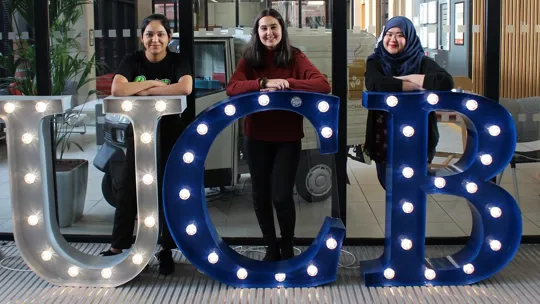We have put together an A to Z of university terms to help you understand what our jargon really means.
Academic transcript
If you wish to transfer you should contact the registry office, where they will be able to issue you with a record of your marks in the form of a Transcript or Notification of Performance. An academic transcript from a degree awarding body can also be referred to as an academic record, a diploma supplement, a statement of learning, a record of achievement or something else similar. It should list all the modules or subjects you studied in each year, the marks or grades you achieved for each module and the credit rating and level of each module.
BA / Bachelor’s degree
A three or four year course you can take in undergraduate higher education after you’ve finished further education – also known as a first or undergraduate degree. It’s either a Bachelor of Arts or Bachelor of Science, depending what subject you choose.
BA (Hons) / Honours
Most first degrees in higher education can come with ‘honours’. It’s not a grade as such; it just means it’s possible to get your degree ‘with honours’, which would be an extra indication of quality.
Conditional Offer
In your application this is an offer of a place on a course, subject to conditions set out by the University admissions department. To be accepted on the course you’ll need to meet the conditions – usually related to your exam results.
Credit Values
Equal Consideration Date
This date occurs in the UCAS cycle, any application submitted before this date must be responded to by institutions, if an applications is submitted after this date it is up to the discretion of each institution as to whether they respond to an applicant.





